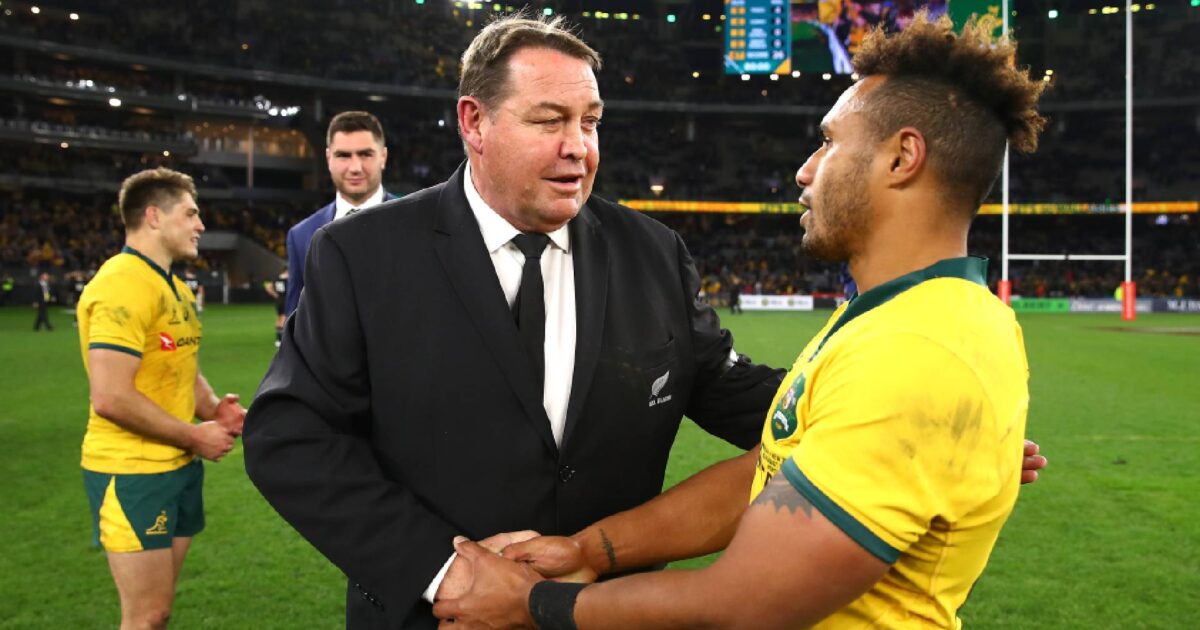Steve Hansen's advice to make the Wallabies and Rugby Australia more competitive

Former All Blacks coach Steve Hansen believes Rugby Australia should take notes from the success of New Zealand Rugby’s structure in order to help them become “more competitive” at the international level.
In recent discussions around next year’s Super Rugby structure, RA have made clear they want to feature all five of their franchises rather than accept NZR’s proposal of having two to four Australian teams along with a new Pacific Island team.
But speaking on Gold AM’s The Country Sport Breakfast this morning, Hansen said reducing the number of teams would do good for Australian rugby.
“You can understand why they want all their teams because they want to grow the game in Australia and that’s the right thing for them to do, but I believe that at international level, they’ve suffered because they’ve had all those teams in Super Rugby,” Hansen said.
“I think if they just went down to three at Super Rugby and kept the same competitions they’ve just had, they’d be a lot stronger, they’d win more, and come international season, be in better shape mentally and be a lot more competitive.
“One of the things I think is a strength in New Zealand Rugby is we’ve gone from Mitre 10 to a higher level and not everyone can go there so if you want to get there you’ve got to improve – if you want to stay there, you’ve got to keep improving and there’s nothing like that happening in Australia.”
Hansen said he enjoyed watching Super Rugby Aotearoa, and although agreeing there were benefits to including overseas teams again, felt this year’s competition was of a high standard.
“There was some great rugby played and it is a hell of an intense competition,” he said. “The thing I liked from a player point of view is they didn’t have to travel all around the world to play in it so I thought the rugby was great, brought out some new talent.
“Right across the board each team you could go into and see the talent.”
Meanwhile, RA has reportedly set NZR a deadline to agree to a Super Rugby competition from 2021.
RA is also reportedly interested in a ‘Super 8’ competition next year, featuring two club sides from Australia, New Zealand and South Africa, along with one from South America and Japan.
It is part of a new content package the governing body is trying to entice broadcasters with, and save their flailing national game which struggles when compared to other winter sport codes.










































































